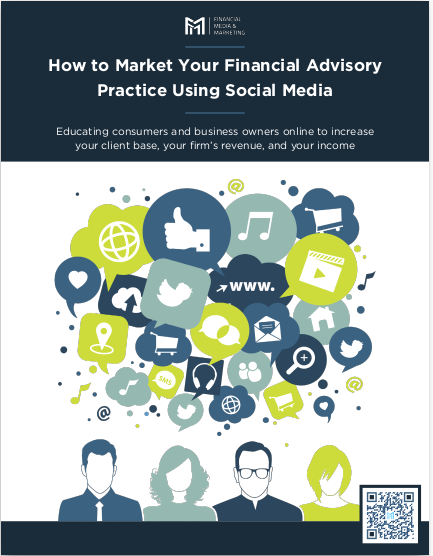Key Takeaways
-
Your website is often the first impression potential clients get, so making it visually appealing, functional, and informative is essential.
-
Implementing lead-generating features, trust-building elements, and clear calls to action can significantly boost your client conversions.
A Website That Converts: The Cornerstone of Your Success
In 2025, having an online presence is non-negotiable for financial advisors. But simply having a website isn’t enough—you need a platform that not only attracts visitors but also turns them into loyal clients. With more people researching financial professionals online before making contact, your website should set you apart from the competition while establishing credibility and trust. A well-optimized website ensures that your expertise is showcased effectively and helps drive more qualified leads.
Clear and Engaging Branding That Reflects You
Professional and Modern Design
Your website should be visually appealing, with a clean, modern design that reinforces your professionalism. Outdated designs can make you seem out of touch, while a sleek layout signals credibility. Ensure your site is mobile-friendly—by 2025, over 70% of web traffic comes from mobile devices, so responsiveness is key.
Consistent Color Scheme and Typography
Your branding should be cohesive, from the color scheme to the fonts used. Stick to professional, muted colors that align with trust and security, such as blues and greens, and use easy-to-read fonts to ensure readability across all devices. A mismatch between colors, fonts, and layout can create a disconnected user experience and make visitors question your credibility.
A Strong Personal or Firm Logo
Your logo is one of the first things visitors notice. It should be simple, yet memorable, and reinforce your brand identity. If you don’t have a professionally designed logo, now is the time to invest in one. A powerful logo enhances brand recognition and solidifies trust, making your practice easily distinguishable in a competitive industry.
Must-Have Pages Every Financial Advisor Needs
A Homepage That Makes an Impact
Your homepage should immediately communicate who you are and how you can help. Visitors should know within seconds what services you provide and why they should trust you. Use clear, compelling copy with an easy-to-navigate menu for seamless user experience. Include an engaging hero section that highlights your unique value proposition, coupled with a professional image or video to establish a personal connection.
A Detailed ‘About’ Page That Builds Trust
Potential clients want to know who they’re trusting with their finances. Your ‘About’ page should include your credentials, experience, and what makes you different from other financial advisors. This is your chance to connect on a personal level, so don’t be afraid to share a bit about your journey and philosophy. A compelling story humanizes your brand and fosters trust.
Service Pages That Clearly Outline What You Offer
Each service you provide should have a dedicated page that explains it in detail. Don’t assume visitors understand financial jargon—break down your services in a way that is easy to digest, outlining the benefits and results clients can expect. Use bullet points, FAQs, and infographics to simplify complex financial concepts.
A Blog That Establishes Authority
Blogging isn’t just for content marketing; it’s a way to showcase your expertise. Regularly updating your website with insightful articles on financial planning, retirement strategies, and investment tips helps establish you as an authority in your field. By 2025, blogs that answer specific financial questions have higher chances of ranking in search engines. Additionally, consider adding video content, as multimedia posts tend to engage users more effectively.
A Clear and Easy-to-Find Contact Page
Your contact page should make it effortless for potential clients to reach you. Include a contact form, phone number, and email address. If you have an office, provide a Google Maps embed to make finding your location easier. Consider adding a chatbot to handle quick inquiries and ensure that response times remain efficient.
Trust-Building Elements That Boost Conversions
Client Testimonials and Reviews
Word of mouth remains one of the strongest influences on financial decisions. Displaying testimonials from satisfied clients builds social proof and reassures potential clients that you deliver results. A dedicated testimonial page can further showcase your success stories.
Certifications and Memberships
Trust is everything in the financial industry. Highlight your certifications, accreditations, and professional memberships prominently on your website. If you are a CFP, CFA, or hold any other credentials, display them with pride. Add badges or seals of approval to make them more visually appealing.
Data Security and Privacy Features
Clients want to know their financial data is safe. Make sure your website has a secure SSL certificate (HTTPS) and a clear privacy policy that explains how client data is protected. Clearly state how you handle sensitive financial information and ensure compliance with industry regulations.
Lead-Generating Features That Set You Apart
Interactive Financial Calculators
Financial calculators allow visitors to engage with your site while gaining valuable insights. Whether it’s a retirement savings calculator or an investment growth estimator, these tools keep users on your page longer and encourage them to take the next step. Advanced calculators that save user inputs can further personalize the experience.
A Lead Magnet That Captures Emails
Offering a free resource, such as a financial planning guide or investment checklist, in exchange for an email address is one of the best ways to generate leads. By 2025, email marketing remains a powerful way to nurture potential clients. Personalized email sequences can improve engagement rates significantly.
Online Booking for Consultations
A seamless appointment scheduling system integrated into your website eliminates back-and-forth emails and increases your chances of converting visitors into clients. Make it easy for visitors to book a free consultation with a simple online scheduling tool. Automated reminders reduce no-shows and improve efficiency.
SEO Strategies to Increase Website Traffic
Keyword-Optimized Content
Your website should be optimized with relevant keywords to improve search engine rankings. Focus on phrases that potential clients are likely to search, such as “financial planning services near me” or “retirement investment strategies.” Optimize meta descriptions and header tags to further boost visibility.
Fast Load Times and Mobile Optimization
Page speed is a crucial factor for both user experience and search rankings. Compress images, minimize code bloat, and ensure your site loads in under three seconds. A well-optimized website also reduces bounce rates and improves engagement.
Internal Linking to Keep Visitors Engaged
Use internal links to guide visitors through your site. Linking blog posts to service pages and vice versa keeps users engaged and helps search engines understand the structure of your website.
Content Personalization and Automation
AI Chatbots for Instant Responses
With the rise of AI-driven customer service, integrating a chatbot can help answer common client questions instantly, improving user experience and engagement. AI-powered responses can guide clients toward relevant financial solutions.
Email Sequences for Nurturing Leads
Automated email sequences keep potential clients engaged after they sign up for your lead magnet. Sending them a series of helpful emails builds trust and keeps you top-of-mind when they’re ready to hire a financial advisor.
Elevate Your Online Presence and Outshine the Competition
A well-designed website is more than just an online business card—it’s a powerful tool that attracts, nurtures, and converts leads. By optimizing your website with the right features, you not only build credibility but also create a seamless experience that encourages potential clients to take action. Take the time to implement these strategies now and position yourself as a trusted expert in 2025 and beyond.










